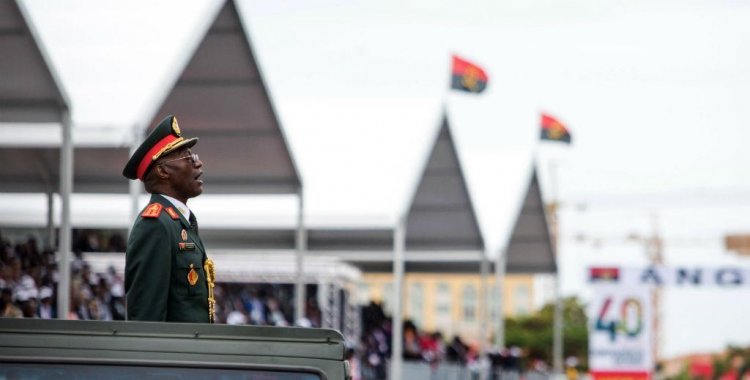The proclamation of Independence was made on November 11, 1975, in three different places from north to south of the country, a sign of the division that was already felt in Angola and that would mark the country for the next three decades.
In Luanda, it was already dark when the leader of the MPLA (Popular Movement for the Liberation of Angola), António Agostinho Neto, who would become the first president of the country, made the proclamation speech at 00:00 in Largo da Independência.
To the south, the leader of UNITA (National Union for the Total Independence of Angola), Jonas Savimbi, made a similar statement in Huambo (at the time, Nova Lisboa) and in the north, the head of the FNLA (National Front for the Liberation of Angola) Holden Roberto chooses the port city of Ambriz to mark the end of Portuguese colonialism and the birth of a new country.
The three leaders are already dead, but their parties persist and continue to mark national politics. The MPLA conquered power and did not lose it again, UNITA, its fierce opponent in the civil war that tore the country apart for 27 years, is the main force of the opposition and the FNLA, although practically disappeared and consumed by internal upheavals , also ensures a representative in Parliament.
The year 2020 would be a year of great celebrations, with a hymn specially commissioned for this purpose (and that became another source of criticism against the executive due to the expense), but the emergence of the first cases of covid-19, in March, swapped the turns to the Government.
The country closed borders at the end of that month and sank into a deep economic and social depression, with the effects of the pandemic aggravating a recessive cycle that has been going on since 2016 and will be repeated this year.
Over the months, while tightening the lathe, the Government tried to balance the measures with some economic relief for companies and citizens, without being able to stop the discontent, which was rising in tone thanks to the explosive combination of rising prices and unemployment, which affects 56.4 percent of young people.
Erratic decisions, with successive appointments and dismissals, lack of transparency in public procurement processes and asset recovery, cases of corruption among MPLA officials, accusations of selective justice, generated disenchantment and mistrust towards President João Lourenço, who lost this year the state of grace that had been granted to him since he succeeded José Eduardo dos Santos in 2017.
After the breach of job promises, the expectation of holding the first municipal elections in 2020 was also dashed, with opposition forces and civic movements strongly criticizing the decision.
The protest has already taken to the street several marches, with the last one, held on October 24, being strongly repressed by the police and culminating in the arrest of a hundred protesters, including journalists, who were briefly tried and remained in prison a week earlier. to be released.
The activists, especially young people, guarantee that they will continue to make the streets of Luanda their office until their demands are met - the date of the local elections, improvement of living conditions, dismissal of João Lourenço's chief of staff, Edeltrudes Costa, allegedly involved in illicit enrichment - and called for a new demonstration for the Independence Day holiday, challenging the Government that limits street gatherings to five people, as a measure to combat covid-19.
Meanwhile, political tension has intensified with mutual accusations of destabilization between the MPLA, which has been in power for almost as long as Angola's years of independence, and its rival, UNITA.
Forty-five years later, independent Angola celebrates a birthday in dark tones, with no parties, no crowds, no big reasons for celebrations.
The country, which relies on oil as its main source of income, has a poverty rate of 41 percent, an unemployment rate of 34 percent and is expected to end the year with a contraction of 2.8 percent of the GDP, according to the latest Government estimates.
The flame of hope that animated Angolans with the arrival of João Lourenço was quickly consumed and slow to find a new breath in the face of a future that the virus has made even more uncertain.







